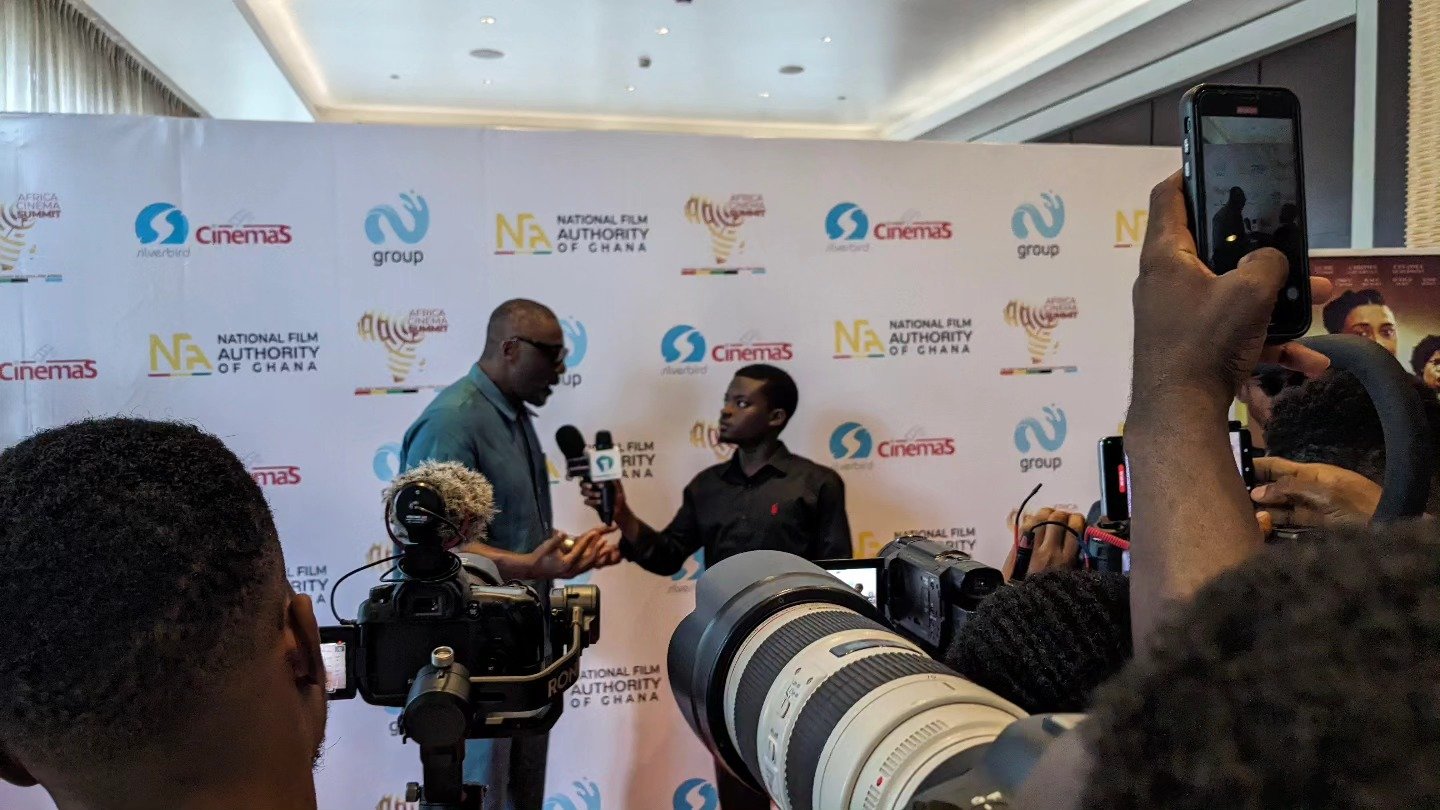Published
1 year agoon

At the Africa Cinema Summit in Accra, Idris Elba wasn’t just a celebrated guest, he was a passionate advocate for the future of African cinema. Born in London to a father from Sierra Leone and a Ghanaian mother, the Golden Globe-winning actor’s roots in Africa have always run deep, and this connection drives his commitment to elevating the continent’s film industry. It is not wrong that he would be called upon to headline this year’s summit.
Idris Elba is known for his roles in Africa-centered films like ‘ Beast of No Nation’ and the hit TV show ‘The Wire’. He has consistently spoken about his bond with Africa. At this year’s summit, his focus was clear, empowering African storytellers and reshaping how African films are shared with the world.
“African cinema is not young. We’ve been around for a long time,” he shared in his speech, which emphasised Africa’s long cinematic history, particularly in French-speaking nations. However, he pointed out that African stories are still waiting for their breakthrough on the global stage.
Africa, despite having one of the world’s youngest populations, has only around 1,700 cinemas. A huge contrast to the 44,000 in the U.S. and 75,500 in China. Elba stressed the need to boost African cinema’s visibility, not just internationally, but within Africa itself.
“We need bums on seats,” he said. “The future relies on us… our own distribution. We must fill the cinemas with our people first.”
This “Africa-first” approach sets Elba apart from others in the industry, who often focus solely on international recognition. For Elba, success means as much on home soil as it does abroad, drawing a parallel with Hollywood, where domestic and international box-office results go hand in hand.
But Elba isn’t just a cheerleader from the sidelines. Through his production companies, IE7 and The Akuna Group, he’s actively investing in African talent and the continent’s creative industries.
Even with the lack of funding, infrastructure, or film education, Elba sees untapped potential. He highlighted the innovative spirit of young African filmmakers who are making films with just their phones, showcasing creativity despite limited resources.
“But we still need to amplify those films. We still need distribution methods,” Elba remarked, encouraging African filmmakers to build an ecosystem that doesn’t rely solely on global platforms like Netflix or Amazon Prime.
While recognizing the importance of these platforms in showcasing African content globally, Elba insisted that true success lies in local capacity building. He envisions a future where African filmmakers can sustain their own thriving industry, complete with independent distribution channels that don’t depend on Western markets.
“We want to penetrate international markets,” he said, “but we need to penetrate African markets as well.”
He also urged African filmmakers to take control of their narratives and dive headfirst into their craft. “Just do it. The barrier between making your film and dreaming about it is much shorter now.”
“We have a long way to go,” Elba acknowledged.
With the second edition of the African Cinema Summit rehashing some of the highlights of its maiden edition, we can only expect that the world is watching and that the film industry in Africa will begin to make bigger and bolder strides.
Second on my list of addictions is Movies.. the only thing I could possibly love more is my Dearest Waakye lol. Nothing else does a better job of reminding me that ANYTHING is possible with the right amount of effort. I have great eye for details and flaws in scripts. Shallow scripts bore me. I am an avid reader. Your everyday Mr Nice guy. Always the last to speak in a room full of smart people. Half Human, half Martian but full MOVIE FREAK.














